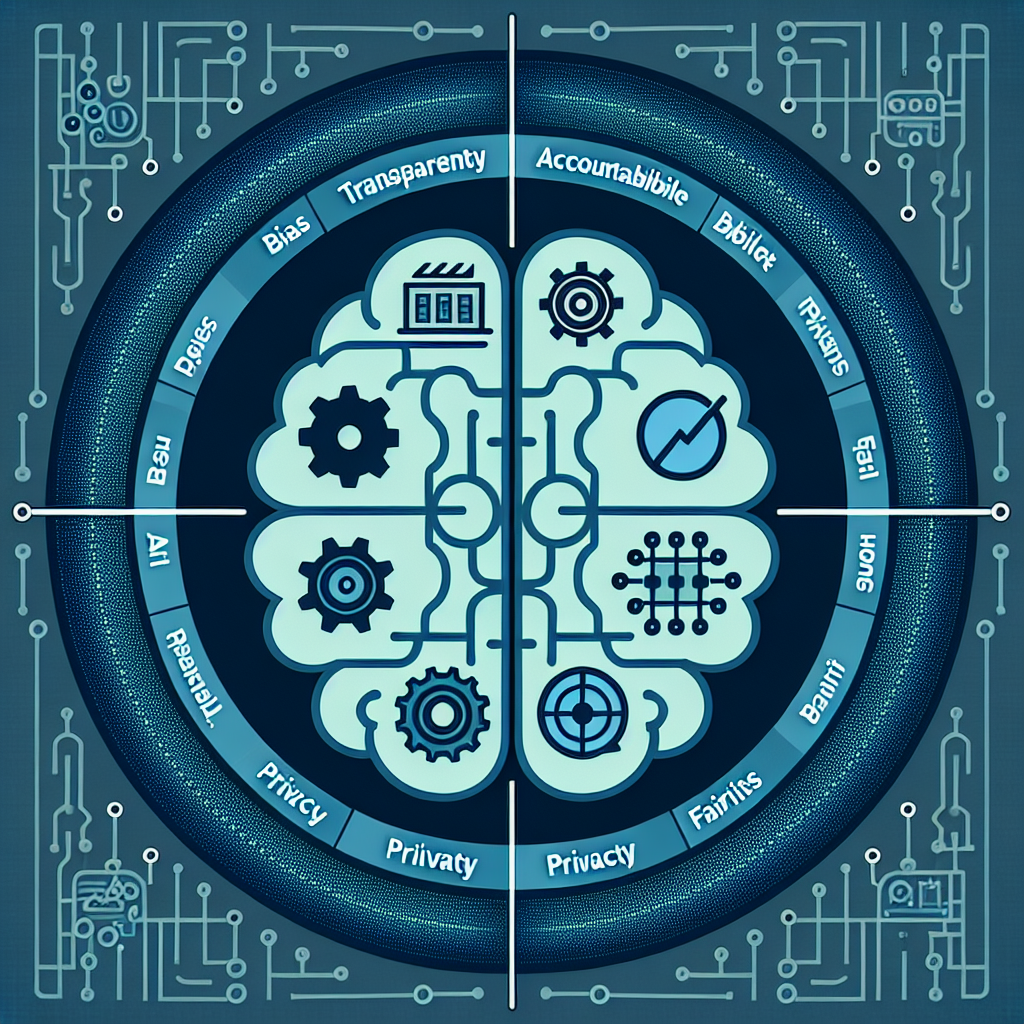Ethical Considerations in AI Deployment
Artificial intelligence (AI) has become an increasingly prevalent technology in our society, with applications ranging from self-driving cars to virtual assistants and beyond. As AI continues to evolve and become more integrated into our daily lives, it is important to consider the ethical implications of its deployment. In this article, we will explore some of the key ethical considerations surrounding AI deployment and discuss how organizations can ensure that their AI systems are deployed in a responsible and ethical manner.
1. Bias and Fairness
One of the most significant ethical considerations in AI deployment is the issue of bias and fairness. AI systems are trained on large datasets, which can sometimes contain biases that reflect societal prejudices. For example, a facial recognition system trained on a dataset that is predominantly composed of images of white individuals may perform poorly when attempting to identify people of color.
To address this issue, organizations must take steps to ensure that their AI systems are trained on diverse and representative datasets. This may involve collecting additional data from underrepresented groups, using techniques such as data augmentation to increase the diversity of the training data, or implementing bias detection and mitigation algorithms to identify and correct biases in the dataset.
2. Transparency and Explainability
Another important ethical consideration in AI deployment is the need for transparency and explainability. AI systems can sometimes produce results that are difficult to interpret or understand, making it challenging for users to trust the system’s decisions. This lack of transparency can lead to concerns about accountability and the potential for bias or discrimination to go unnoticed.
To address this issue, organizations should strive to make their AI systems as transparent and explainable as possible. This may involve providing users with information about how the system works, the data it uses, and the factors that influence its decisions. Organizations should also consider implementing mechanisms for explaining the rationale behind the system’s decisions, such as generating human-readable explanations or visualizations of the decision-making process.
3. Privacy and Data Security
Privacy and data security are also important ethical considerations in AI deployment. AI systems often rely on vast amounts of data to make decisions, which can raise concerns about the protection of sensitive information. Organizations must take steps to ensure that their AI systems comply with relevant privacy regulations and safeguard user data from unauthorized access or misuse.
To address this issue, organizations should implement robust data protection measures, such as encryption, access controls, and data anonymization, to minimize the risk of data breaches and unauthorized access. Organizations should also be transparent with users about how their data will be used and provide them with the opportunity to opt out of data collection or processing where possible.
4. Accountability and Oversight
Finally, accountability and oversight are critical ethical considerations in AI deployment. As AI systems become more autonomous and make decisions that impact individuals’ lives, it is important for organizations to establish mechanisms for accountability and oversight to ensure that their AI systems are deployed responsibly and ethically.
To address this issue, organizations should implement processes for monitoring and evaluating the performance of their AI systems, as well as mechanisms for addressing any issues or concerns that arise. Organizations should also establish clear lines of responsibility and accountability for the deployment of AI systems, ensuring that decision-makers are held accountable for the outcomes of their AI systems.
Frequently Asked Questions (FAQs)
Q: How can organizations ensure that their AI systems are free from bias?
A: Organizations can take several steps to ensure that their AI systems are free from bias, including using diverse and representative datasets, implementing bias detection and mitigation algorithms, and conducting regular audits of their AI systems to identify and correct biases.
Q: How can organizations make their AI systems more transparent and explainable?
A: Organizations can make their AI systems more transparent and explainable by providing users with information about how the system works, the data it uses, and the factors that influence its decisions. Organizations can also implement mechanisms for explaining the rationale behind the system’s decisions, such as generating human-readable explanations or visualizations of the decision-making process.
Q: What data protection measures should organizations implement to safeguard user data in AI systems?
A: Organizations should implement robust data protection measures, such as encryption, access controls, and data anonymization, to safeguard user data in AI systems. Organizations should also be transparent with users about how their data will be used and provide them with the opportunity to opt out of data collection or processing where possible.
Q: How can organizations establish mechanisms for accountability and oversight in the deployment of AI systems?
A: Organizations can establish mechanisms for accountability and oversight in the deployment of AI systems by implementing processes for monitoring and evaluating the performance of their AI systems, as well as mechanisms for addressing any issues or concerns that arise. Organizations should also establish clear lines of responsibility and accountability for the deployment of AI systems, ensuring that decision-makers are held accountable for the outcomes of their AI systems.
In conclusion, ethical considerations in AI deployment are essential to ensuring that AI systems are deployed in a responsible and ethical manner. By addressing issues such as bias and fairness, transparency and explainability, privacy and data security, and accountability and oversight, organizations can deploy AI systems that benefit society while minimizing potential risks and harms.

